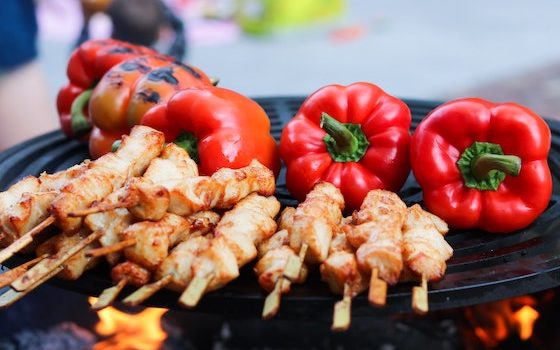By Annie Ferland, Nutritionist, PharmD
Barbecue season is finally here, and many of us can’t wait to fire up the grill! This summer tradition offers several nutritional benefits, including quick grilling without added fat. Not to mention the delicious flavours of summer! However, some aspects related to the use of barbecues have been singled out as being potentially harmful to our health. As a matter of fact, barbecuing can release certain carcinogenic by-products. Should we be concerned?
Reaching the smoke point
Barbecuing exposes food to two potential dangers. Firstly, meat fat melts when subjected to high temperatures. The liquefied fat can catch fire and the resulting smoke settles on the food. This smoke contains a carcinogenic compound, benzo[a]pyrene, or BaP. BaP has been shown to increase the risk of breast cancer in those who consume barbecued foods daily.
Over-grilling
Secondly, grilling meat above 180 °C (350 °F) can produce a chain reaction resulting in a carcinogenic compound called heterocyclic amine. (HCA) Note to those who prefer their meat on the charred side, the longer the cooking time, the greater the quantity of HCAs. Animal studies suggest HCAs can lead to DNA damage and promote the development of cancer cells in the colon, breasts, prostate, and lymphatic system.
Goodbye BBQ?
But don’t panic, there is also some good news! Barbecuing can still be a safe option as long as you know how to sidestep its potential hazards Remember, the risk of developing cancer is relatively small and also depends on a host of other factors. Not to mention that in Quebec, most of us do not have the option of using our barbecues year-round.
Tips on how to safely enjoy your barbecue
There are a few simple things you can do to reduce the presence of these harmful compounds in your food and use the barbecue with peace of mind:
- Choose lean meats. Fish and seafood produce fewer HCAs than beef, pork and poultry.
- Opt for smaller cuts. These will cook faster and at lower temperatures.
- Trim all visible fat from the meat. This reduces the amount of fat that drips onto the briquettes, lessening the amount of harmful smoke produced.
- Have a vegetarian barbecue. Only animal fats form these potentially carcinogenic compounds.
- Barbecue food in foil packets or, alternatively, on the upper grill, a cedar plank, or one of those amazing Himalayan salt blocks. With these methods, the flames don’t come in direct contact with the food, which reduces the likelihood of carcinogenic compounds forming.
- Precook the meat. You can start cooking larger pieces of meat in a conventional oven, microwave or a sous-vide precision cooker (thermocirculator) before placing them on the grill. This can reduce HCA formation by more than 90%.

